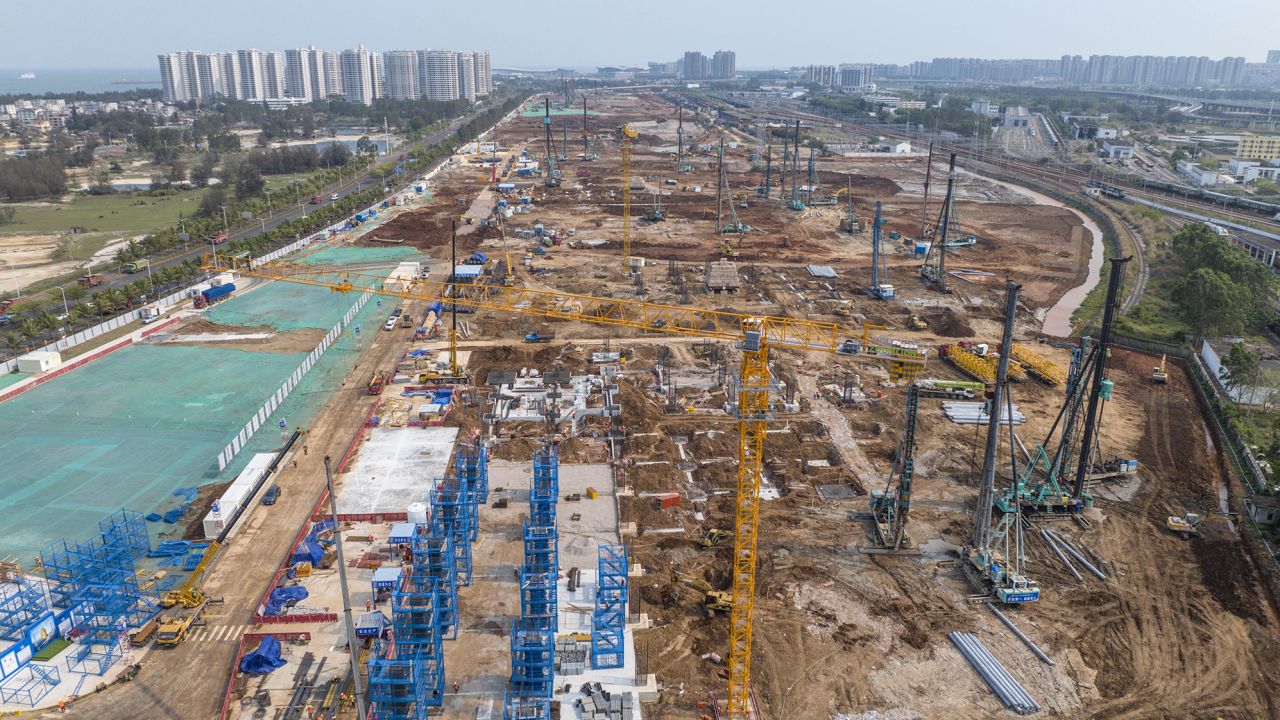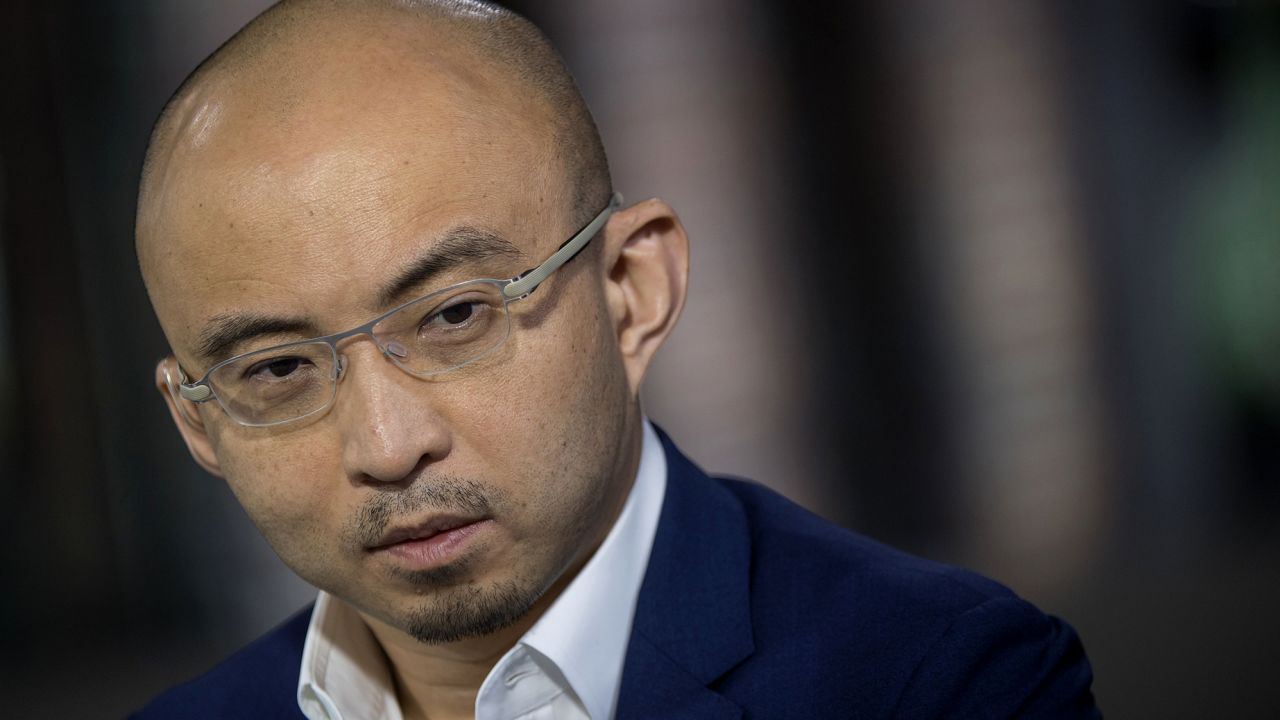Laura He

After years of regulatory crackdowns and draconian Covid curbs, private entrepreneurs in China are low on enthusiasm. The Chinese government is resorting to surprising measures to restore their confidence, but the campaign has inspired more nervousness than optimism.
The province of Hainan, an island that Beijing plans to turn into the world’s largest free trade port, rolled out a sweeping package of initiatives late last month intended to support the private sector. The most eyebrow-raising was a pledge from the provincial government not to target private businesspeople without cause.
“For those entrepreneurs involved in criminal cases, [authorities] should not arrest them if it’s not necessary, should not prosecute them if it’s not necessary, should not give them jail terms if it’s not necessary,” it said in a statement. “If it’s also not needed to continue to detain them, [authorities] should release them in a timely manner or change enforcement measures [against them].”
The construction site of Hainan's free trade port in the provincial capital of Haikou, photographed in April 2023Luo Yunfei/China News Service/VCG/Getty Images
The package contains more than two dozen measures to support private industry, which accounts for more than 60% of China’s GDP and over 80% of employment.
The Hainan government said the measures were aimed at protecting the legitimate rights and interests of private entrepreneurs and creating a “fair and just” legal environment.
Instead, the announcement caused great controversy online and offline. Some people criticized the move as “absurd” on social media, as it implied the government had been arresting people at will and that entrepreneurs could now enjoy extrajudicial rights.
Rather than assuaging worries among entrepreneurs and encouraging them to create jobs and economic growth, the statement — in which the most controversial promises were later deleted — could have the opposite effect, according to analysts. It may cause even more anxiety among businesspeople about arbitrary punishment.
“The Chinese government is trying to turn Hainan Island into a fully ‘open’ zone,” said Willy Lam, a senior fellow at the Jamestown Foundation, a Washington-based think-tank. “However, the statement by Hainan authorities underscores the arbitrary nature of Chinese laws even regarding multi-million-yuan private bosses.”
There have been repeated reports of private entrepreneurs being detained on “dubious charges,” he noted.
One of the highest-profile cases involves Bao Fan, a star investment banker, who has been missing since February.

Bao Fan, founder of China Renaissance, photographed on June 15, 2016David Paul Morris/Bloomberg/Getty Images
His company, China Renaissance, has said Bao is “cooperating in an investigation” being carried out by authorities. But it has given no other details. Analysts believe he might have been embroiled in Beijing’s sweeping anti-corruption crackdown on the country’s financial industry.
Private investment ‘stalled’
Hainan’s measures come at a critical time for the world’s second-largest economy, which is on a fragile recovery path after three years of strict Covid-19 controls and a years-long clampdown on private industry.
Growth has slowed to the weakest level in decades. Business confidence is low, making companies wary of investing or hiring. Unemployment remains high, especially among young people.
China’s political leaders, including Xi Jinping, have sought to reassure investors and entrepreneurs that it’s safe to invest in the country again.
But “statements alone will not restore the confidence of the private sector,” said Nicholas Lardy, senior fellow at the Peterson Institute for International Economics (PIIE). “Actions, such as reducing the role of the [Chinese Communist] Party in the economy, will speak louder than words.”
He noted that private investment in China stalled last year, while state investment surged. But the former is more efficient, he said, generating more economic growth for each unit of investment.
If anything, the private sector seems to be retreating even more so far this year.
In January and February, the gap between the pace of private and state-led fixed asset investment widened further compared with last year, according to official data. State-led investment surged 10.5%, while private investment increased a mere 0.8%. In 2022, state investment rose 10.1%, while private investment ticked up 0.9%.
“This shows confidence among private entrepreneurs is still lacking despite China’s Covid reopening and the repeated vocal reassurance recently from officials,” said Tianlei Huang, a research fellow and the China Program coordinator at the PIIE.
Scared away?
Chinese authorities have vowed to revive the country’s economy, which is showing sluggish growth, and have rolled out the welcome wagon for foreign businesses. In March, new premier Li Qiang pledged China would align with global trade rules, give equal treatment to foreign investment and facilitate trade and investment by removing government controls.
Some Western companies have taken the bait. Tesla (TSLA) announced this month that it would build a new battery factory in Shanghai.
Europe’s Airbus (EADSF) unveiled plans to build a second assembly line in the northern city of Tianjin to double production capacity.
But most entrepreneurs and investors, foreign or domestic, could still be deterred by President Xi’s desire to prioritize ideological control over economic objectives, analysts said.
“Most private businesspeople, particularly owners of small- and medium-sized firms, still prefer to lie low instead of making big investments in a market that stresses party control rather than the entrepreneurial spirit,” said Lam at the Jamestown Foundation.
Last month, Xi called on the private sector to play a role in boosting growth and promised the government would provide support whenever they ran into difficulties.
“We always regard private enterprises and private entrepreneurs as people on our own side,” Xi said.
But he also suggested private firms should align with the ruling party’s priorities, such as being “patriotic” and participating actively in “charity undertakings” — in line with his “common prosperity” campaign.
“[Xi], the central people’s government and the Hainan government do not see themselves as anti-business,” said Steve Tsang, director of the China Institute at SOAS University of London.
“Indeed, they see themselves as pro-business on the basis that businesses are all doing the bidding” of the Communist Party, he said.
Lam also pointed out that recent statements by Xi and his team had stressed loyalty to the party and “national security” over the blossoming of market forces.
“While they need more input from private and foreign businesspeople, the emphasis on political correctness over free and unbridled economic development could turn off non-state-sector investors both within China and from abroad,” Lam said.
No comments:
Post a Comment